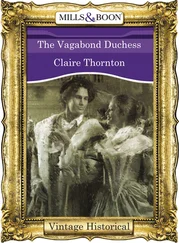“Part of our wall clock,” he said, pointing to plastic cogs rendered in the silvery graphite of Zhen’s pencils.
She had flipped their clock over on its face to get to the black plastic cartridge that attached to the hour, minute, and second hands. Using her father’s tiny screwdriver, Zhen had opened the cartridge and disassembled the inner workings piece by piece. After close inspection, Zhen drew several pieces on a page at three times the scale in near perfect proportion. Finally, Zhen rubbed her pencil eraser through thick applications of graphite, creating white smudges that mimicked light reflecting off copper wiring or the glossy dark surface of a battery cylinder.
When her grandfather handed back the stack of drawings, Zhen flipped on the bedside lamp beside them. She tapped her stack on the nightstand to square up the edges, then held it up to the light. Her papers looked as translucent as the skins of a pan-seared onion. Clock pieces on every page overlapped in their original configuration. Zhen’s grandfather even saw the plastic teeth of several cogs interlock. He smiled and embraced his granddaughter with pride. The stench of stale cigarettes and sweat made Zhen breathe through her mouth, but she still held him tight.
“And it worked when you put the pieces back together?” her grandfather asked.
He often told Zhen that his full approval had to be short lived because she was young, and it was the job of the young to learn and improve. Zhen released his narrow shoulders and nodded quickly.
“And you hung it back on the wall before your mother noticed your tinkering?” he added.
Zhen giggled and instinctually covered her smile with her hand. When she was younger, she couldn’t remember how many years ago exactly, Zhen had tried every facial expression she could think of in front of a mirror. Both smiling and frowning tugged on the scars below her nose and exaggerated them. After this discovery, Zhen covered her mouth when she felt it stretch with expression. The habit made her grandfather very sad.
“Please don’t hide your smile,” he reminded her.
Zhen slowly moved her hand; she couldn’t deny her grandfather anything.
“When I was young and strong, I protected my family from the entire Red Army,” he muttered, “and now I can’t even protect them from ordinary assholes.”
He sighed and pointed to her drawings to change the subject. The tip of his finger rested on the sketch of a tiny cylinder of metal that Zhen couldn’t open without fear of breaking it.
“And what do you think is inside this?” he asked.
“The thing that keeps the time?”
It was the only part of the equation that was missing. Zhen’s eyes could trace the transition of electric power that began with the battery and ended in the mechanical power of a stepping motor that moved the cogs that turned the hands—but where was the precision and control? Zhen’s grandfather didn’t seem too surprised or disappointed when she had no further guesses.
“What was the one word printed on the clockface?” he prodded.
“Quartz?”
He lifted his eyebrows. And here Zhen always thought it was the name of a company, not a mineral inside! She tried to ask questions, but a fit of coughing and wheezing gasps interrupted her grandfather’s answers.
“Ask your father about quartz crystal oscillators when he gets home from work,” he finally managed to say. “I shouldn’t have all the fun.”
Zhen’s grandfather lay back on his pillows, spent, exposing the bony knob of his throat. He had only one more question for her, the same question he always asked before gently patting her on the shoulder to dismiss her.
“And your mathematics?”
He had pushed his children and grandchildren toward the useful profession of engineering for their own safety and sanity; pure mathematics was once considered a pastime for bourgeois intellectuals, and cryptography led to obsession and madness. Whatever the application, however, math was the universal language at its foundation. This language was innate to the Liu family, such that they could not only speak it from a young age but sing with full lungs. Zhen assured her grandfather that her test scores were very good. Only after he pressed her did Zhen admit that they were perfect.
When she stepped into the hallway, her mother was silently standing close to the bedroom door. She turned and walked back to the family room. Zhen followed, quietly repeating her grandfather’s request for his afternoon tea and his comment that the afternoon noodle broth didn’t have enough Sichuan pepper.
Zhen’s mother turned and planted her feet.
“I get angry at you sometimes,” she admitted.
Zhen hung her head as she sat on the sofa and pulled books and worksheets out of her backpack. She hoped her mother would leave her to concentrate on schoolwork—not that she needed concentration. Zhen often got in trouble with her math teacher because she never wrote out equations, just the answers. Doing calculations in her head was much faster and allowed more time for Zhen to sit at her desk and think of more interesting equations. Her teacher knew better than to accuse Zhen of cheating, but he often lectured the class on the dangers of arrogance as he paced up and down rows of desks, pausing at Zhen’s. He was very wrong. Zhen didn’t enjoy watching her classmates struggle with solutions that came to her instantly. It didn’t make her feel superior that she had a better handle on mathematics than her teacher; it just made her feel more alone.
“It’s not that I don’t care,” her mother insisted. “It’s that I care too much. When you let those bullies hurt you, you let them hurt me.”
Zhen nodded and swallowed hard. Her eyes stung.
“You must be brave,” her mother pleaded. “Wear your skin armor.”
In the Zhou dynasty, warriors had stretched dried rhino skin into coats of armor. The grandmother who had told these stories to Zhen’s mother was taken away and never returned. Zhen’s mother didn’t have her own mother. She only had Zhen.
“I will be brave,” Zhen promised out loud.
Light reflections swam in her mother’s dark eyes, a purer white than Zhen could achieve with the strenuous rubbing of her pencil eraser.
“A quartz oscillator is a tiny crystal cut from quartz in the shape of a tuning fork,” her mother said, sniffing a runny nose.
Zhen listened as her mother explained the properties of quartz: after applying a voltage, the mineral could vibrate back and forth an exact number of times per second, creating an electrical signal with a precise frequency. This was the precision and control that was missing.
“Quartz clocks are better than pendulum clocks that depend on gravity, which changes from valleys to mountaintops,” her mother added.
She smiled and pointed to Zhen’s school backpack.
“May I see your drawings?”
* * *
THAT NIGHT, ZHEN woke with a painfully full bladder. She tried to fall back asleep, but it was inevitable that she would need to use the washroom. Zhen wiggled her feet into slippers and stood in the moonlight. Tiptoeing soundlessly, Zhen heard noises from her parents’ bedroom. She pressed her ear against the door and heard the creaking and metallic plings of shifting weight on a wooden bed frame and coiled box springs. Her mother’s voice was muffled but understandable as she spoke to her husband.
“I want Zhen to be tutored in languages like Kuo.”
Zhen held her breath. The world outside of China was still an exotic mystery that she had only begun to experience secondhand. Foreign students had returned to China’s universities in the last several years. Zhen’s father had invited several to his home to teach his son languages like Russian, German, and Italian. His wife served tea at the rosewood dining table, where lessons were conducted. Zhen helped her mother so she could hover and listen. She felt like her cryptographer grandfather, on a mission to decode the hidden order of what sounded like a babble of noise.
Читать дальше












